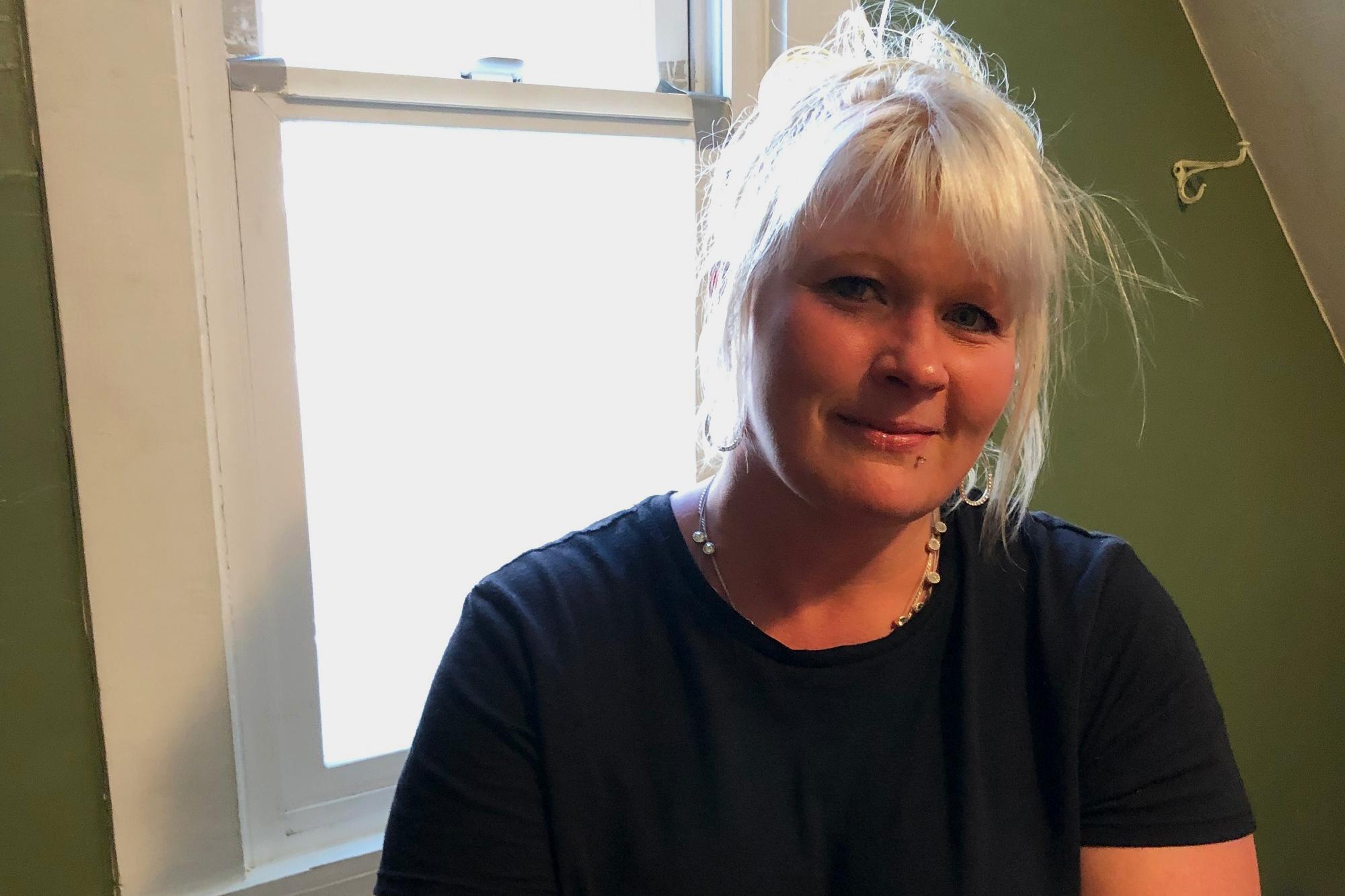
Melinda McDowell had used drugs since she was a teenager. But she didn’t try methamphetamine until one fateful night in 2017 after her mother died suddenly of a stroke. She went over to a neighbor’s house and he had crystal meth.
“I tried it and I was hooked from the first hit,” McDowell said. “It was an explosion of the senses. It was the biggest high I'd ever experienced.”
But after, McDowell said that big high started getting more elusive. She went from 240 pounds to 110. Eventually, her children were taken away and put in foster homes.. McDowell started having hallucinations, at one point nearly cutting her face.
“I used to think that there was this black web that was kind of like a veil or a drape,” McDowell said. “And I would sit in the mirror and look at, and I would take a knife and try to slice it off.”
McDowell tried many times to stop using meth but couldn’t. One night, she remembers lying on her bathroom floor thinking that if she didn’t get help, she’d die or kill herself.
She'd heard about a woman named Nancy Beste, who'd recently opened the door to Road to Recovery in Steamboat Springs, near where McDowell lived. McDowell said she begged Beste for help.
Beste, who’s a certified addiction counselor and physician’s assistant, said McDowell’s call came at a fortuitous time. She’d just gotten back from a conference where she learned about research into what’s called medication-assisted treatment, or MAT, for methamphetamine users. Studies have found that Naltrexone, the same medication used to treat alcohol addiction and opioids, can work for some people addicted to methamphetamine.
Beste gave McDowell a prescription for Naltrexone and signed her up for individual and group therapy. McDowell said three to four hours after she took the first pill, she felt better. After the second pill, the withdrawals began to fade.
“The shaking started going away. I wasn't panicking. I could feel some relief.” McDowell said. “I knew there was something different.”
That was over a year ago. McDowell is still sober today.
Medication-assisted treatment with drugs like Methadone, Buprenorphine and Naltrexone are standard care for people addicted to opioids, but practitioners are only just starting to learn about MAT treatments for methamphetamine.

Beste relocated to Steamboat Springs from the metro area over a year ago thanks in part to funding for a state pilot program to treat opioid addiction. She quickly learned that while people are more aware of the opioid epidemic, methamphetamine is just as big a problem here.
Especially in a tiny ski town like Steamboat, Beste said people don’t always want to admit that a drug like meth is pervasive.
“I have a lot of people that live here that say, oh, we're safe. You know, my kids are involved in sports and my kids are straight A students and it's not gonna affect us,” Beste said.” But the truth is this is a resort town and there's a lot of partying going on here.”
Despite their successes, Beste and others do caution that drugs like Naltrexone, and a longer-acting drug called Vivitrol, aren’t yet FDA-approved for methamphetamine addiction and more research needs to be done. So far, Beste has tried the drugs with about 16 clients. Of those, at least 10 have been helped to varying degrees.
Beste said all her clients have to do counseling in conjunction with medication-assisted treatment, and the goal is to eventually wean them off of those medications.
Melissa McDowell said getting off meth has been arduous. But she credits the medicine for helping her stay sober now for more than a year. Still, it’s an uphill battle. McDowell recently learned that the courts had denied her efforts to get custody of her children back.
But she’s still pushing forward. McDowell is interviewing for jobs, and at some point, she wants to go to school so she can treat people like her, who want to break free of methamphetamine.








